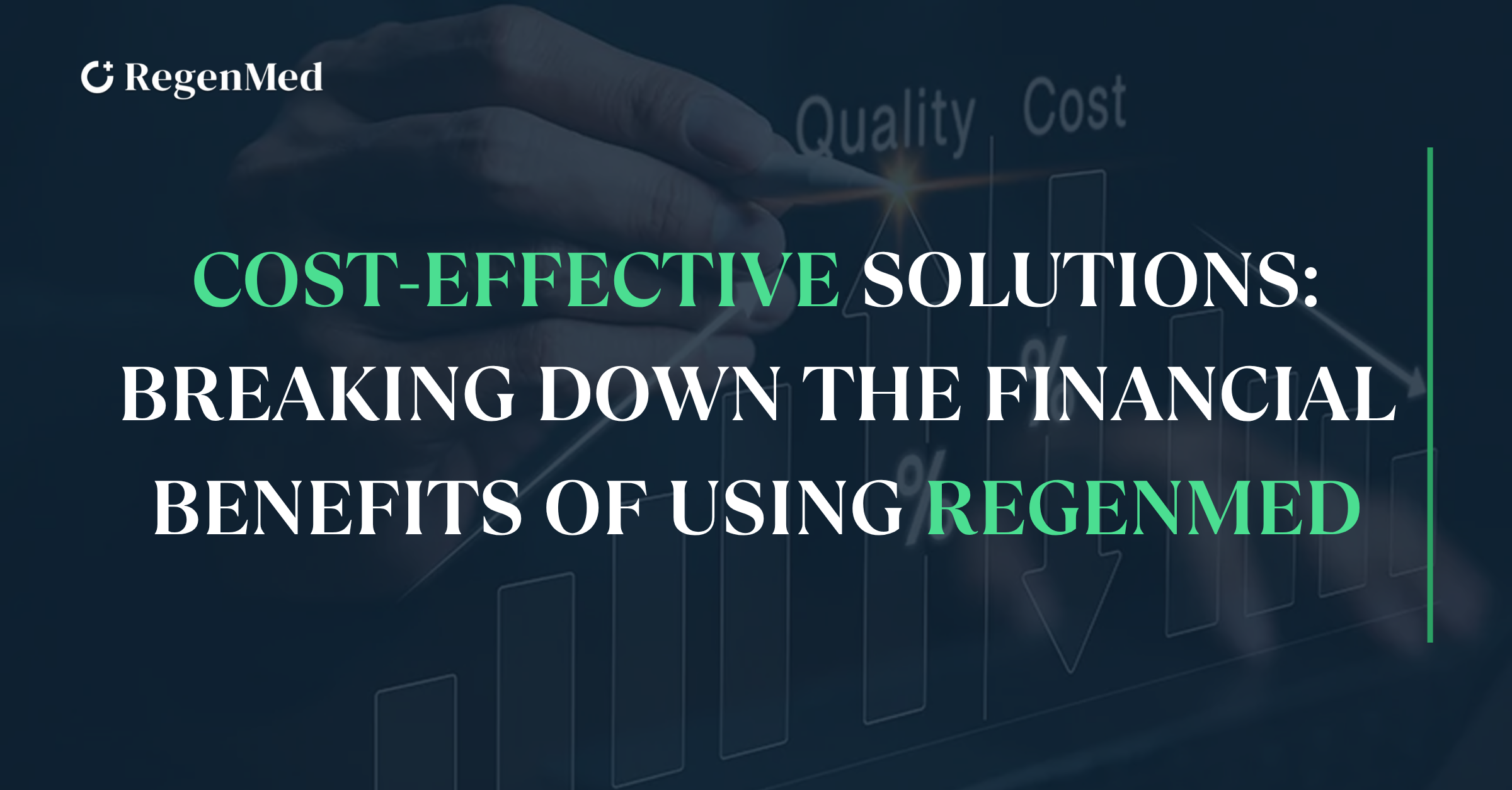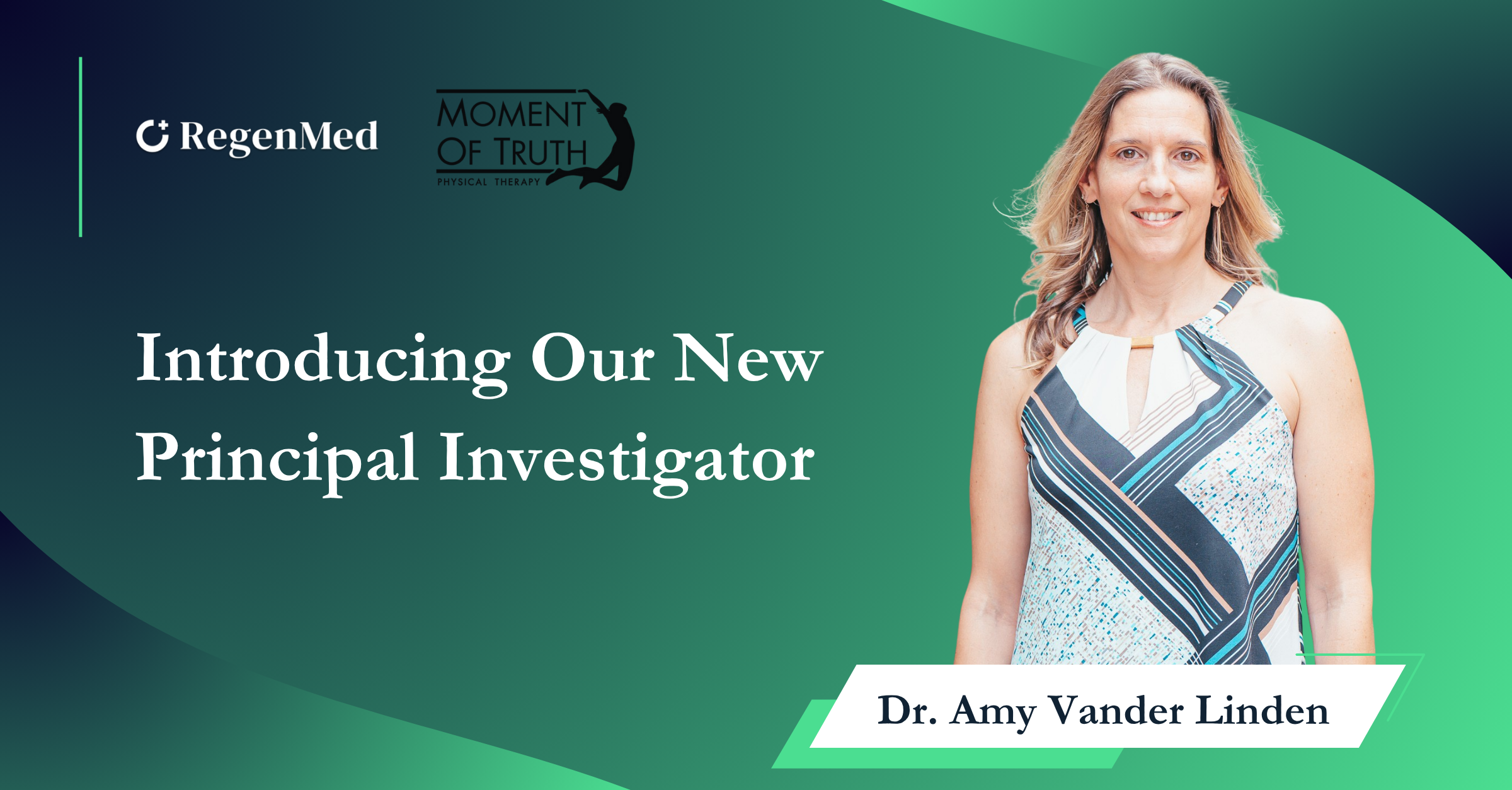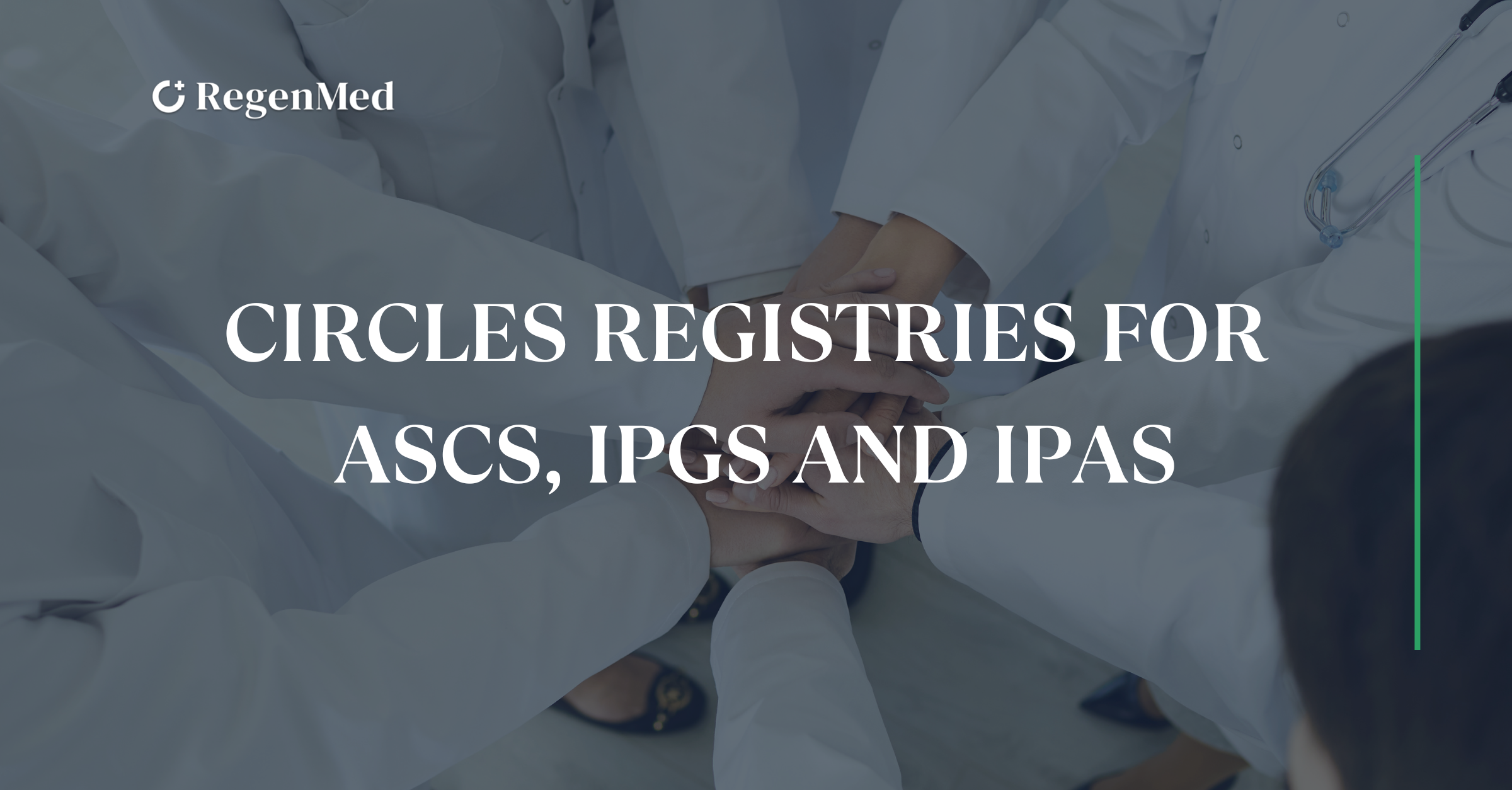Advancing Orthopedic Care: Real-World Evidence From A Closed System For TKA And THA
Discover how RegenMed’s innovative closed data system transforms knee and hip replacement outcomes by capturing high-quality, real-world evidence directly from care. Unlock precise insights, personalized care, and continuous improvement — without relying on fragmented data sources.
The Power of Internally Generated EvidenceIn the quest to improve outcomes in total knee (TKA) and total hip arthroplasty (THA), Real-World Evidence (RWE) has become indispensable. However, the traditional sources of RWE — claims databases, generalized EHRs, and broad registries — often suffer from data quality issues, inconsistent definitions, and limited traceability. RegenMed’s TKA and THA Circles utilize a closed data system that captures, validates, and leverages high-quality data generated entirely within the care ecosystem. This ensures unambiguous ownership by the provider group of all data, along with its attendant clinical and financial value.Circles focus on internal validity over generalizability. Instead of aggregating disparate data sources, they efficiently capture detailed clinician entries, directly reported patient outcomes, and validated device data within a singular, controlled environment. The result is highly trusted, clinically actionable evidence that enables precise quality improvement and local innovation.Data That Drives ImprovementCircles collect a rich spectrum of data directly at the source. From granular surgical technique details and implant identifiers to validated Patient-Reported Outcome Measures (PROMs), the system ensures every data point is structured, time-stamped, and contextually relevant. Examples include:Clinician-entered details: surgical approach, anesthesia type, implant lot numbers, and intraoperative events.Patient-reported outcomes: pain and function scores (e.g., KOOS JR, HOOS JR), satisfaction, and health literacy, collected via tablets, portals, or mobile apps.Device integration: metrics like range of motion or activity levels from validated wearables and intraoperative sensors.Critically, all data flows through validation checkpoints — automated rules, structured forms, and internal audits — to maintain integrity. This allows for nuanced analysis of surgical techniques, implant performance, patient subgroups, and care pathways.Applications Within the SystemThe true strength of closed-system RWE lies in its targeted application. It empowers:Surgeon and site benchmarking: Enabling risk-adjusted comparisons of PROMs, complications, and revisions.Comparative effectiveness: Studying local outcomes from different implants, approaches, or protocols.Longitudinal outcome tracking: Understanding patient recovery trajectories and long-term implant performance.Personalized care: Using AI/ML models to predict outcomes, stratify risk, and inform shared decision-making based on system-specific data.Moreover, RegenMed’s TKA and THA Circles foster continuous improvement by linking outcomes to care practices. For example, PROM data can inform refinements in perioperative protocols, while validated device metrics can enhance rehabilitation pathways.Navigating Limitations with TransparencyCircles offer precision and trust — but with trade-offs. Because a single provider’s findings apply primarily to its own population and practice environment, generalizability is limited. Circles address these challenges by supporting broad participation in the same TKA or THA Observational Protocol by any type of provider – academic medical centers, independent provider groups and even sole practitioners — wherever located in the world. ConclusionRegenMed’s THA and TKA Circles represent a forward-thinking strategy to generate clinically meaningful RWE for orthopedic procedures. They are essential to genuine value-based care environments. By focusing on internal data integrity and application, they provide a blueprint for organizations seeking to enhance surgical outcomes, personalize patient care, and lead with data-driven precision—all from within their own ecosystem.
See more


%20Graph.png)

.png)


